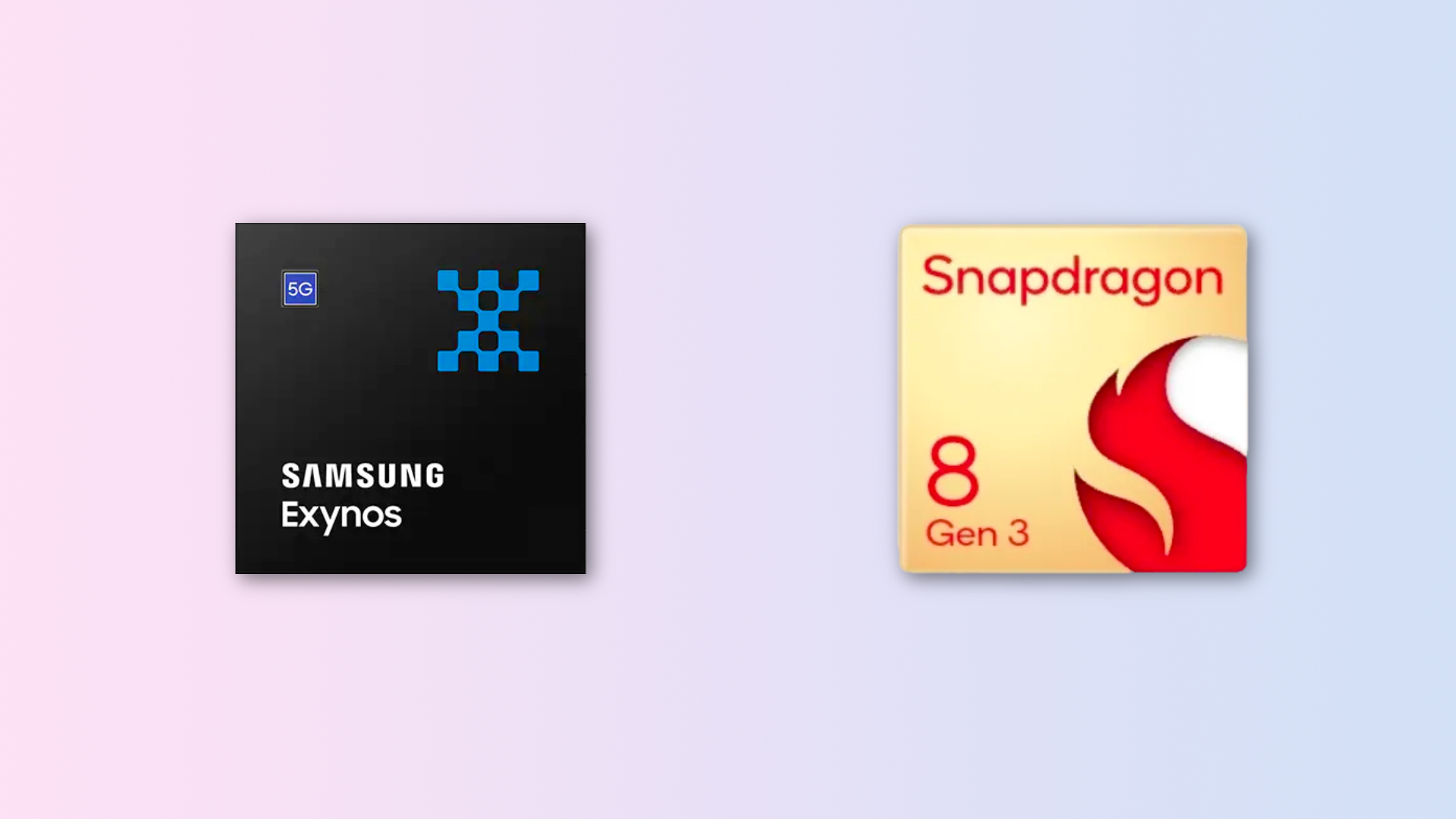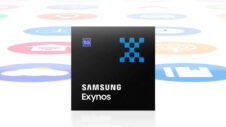Samsung unveiled the Galaxy S24 series last night. After exclusively using Qualcomm's Snapdragon processors in Galaxy S23 phones last year, the company has brought back in-house Exynos chips this year. The Exynos 2400 is used in the Galaxy S24 and the Galaxy S24+ in most countries worldwide. In Canada, China, and the US, the same phones use the Snapdragon 8 Gen For Galaxy processor. The Galaxy S24 Ultra, though, only uses the Snapdragon 8 Gen 3 For Galaxy chip.
So, what's the difference between the Exynos 2400 and the Snapdragon 8 Gen 3? Let us find out.
Exynos 2400 vs Snapdragon 8 Gen 3: Specifications comparison
The Exynos 2400 is fabricated using Samsung Foundry's third-generation 4nm process (4LPP+/SF4P), while the Snapdragon 8 Gen 3 is made using TSMC's second-generation 4nm process (N4P). Both processors use ARM's latest CPU cores, but the Snapdragon 8 Gen 3 has an octa-core CPU, while the Exynos 2400 has a deca-core CPU.
CPU
The Snapdragon 8 Gen 3 has one Cortex-X4 CPU core clocked at 3.3GHz, while Exynos 2400's Cortex-X4 CPU core is clocked at 3.2GHz. The Snapdragon 8 Gen 3 has three Cortex-A720 CPU cores clocked at 3.15GHz and two Cortex-A720 CPU cores clocked at 2.96GHz. In comparison, the Exynos 2400 has two Cortex-A720 CPU cores clocked at 2.9GHz and three Cortex-A720 CPU cores clocked at 2.6GHz.
The Snapdragon 8 Gen 3 has only two Cortex-A520 power-efficient CPU cores, and they are clocked at 2.27GHz. In comparison, the Exynos 2400 has four Cortex-A520 CPU cores, and they are clocked at 1.95GHz. Both chips support UFS 4.0 storage and LPDDR5X RAM.
| Exynos 2400 | Snapdragon 8 Gen 3 | Snapdragon 8 Gen 3 For Galaxy | |
| Prime CPU Cores | 1x Cortex-X4 3.2GHz | 1x Cortex-X4 3.3GHz | 1x Cortex-X4 3.39GHz |
| Mid CPU Cores | 2x Cortex-A720 2.9GHz | 3x Cortex-A720 3.15GHz | 3x Cortex-A720 3.1GHz |
| Mid CPU Cores | 3x Cortex-A720 2.6GHz | 2x Cortex-A720 2.96GHz | 2x Cortex-A720 2.9GHz |
| Power Efficient CPU Cores | 4x Cortex-A520 1.95GHz | 2x Cortex-A520 2.27GHz | 2x Cortex-A520 2.2GHz |
| GPU | Xclipse 940 | Adreno 750 (770-903MHz) | Adreno 750 (Unknown MHz) |
GPU
The GPU inside the Snapdragon 8 Gen 3 is the Adreno 750, and it is among the most powerful GPUs in the smartphone segment right now. It is even more powerful than Apple's A17 Pro chip in terms of graphics performance. The Exynos 2400 has the Xclipse 940 GPU that uses AMD's latest and greatest GPU technology: RDNA3.
Both chips support hardware-based raytracing and VRS (Variable Rate Shading) for games, and they are more than capable enough to run high-end games without breaking a sweat. However, it remains to be seen if the Exynos 2400 can sustain peak performance for a longer period of time.
Both chips can drive QHD+ screens at a 144Hz refresh rate, but the Exynos 2400 can drive 4K 120Hz screens, while the Snapdragon 8 Gen 3 maxes out at 4K 60Hz. Both processors support variable refresh rate, HDR, and HDR gaming.
Exynos chips are usually worse than their Snapdragon counterparts in terms of efficiency, thermals, and performance. However, Samsung says that it has used the new FOWLP (Fan-Out Wafer Level Packaging) chip packaging technology that offers much better thermal performance, so the chip may sustain its peak performance for a longer period of time. Only real-life tests will reveal if the Exynos 2400 can match the performance and power efficiency of the Snapdragon 8 Gen 3.
NPU & AI
Both chips have pretty powerful NPUs (Neural Processing Units) with support for on-device AI processing. So, the device doesn't need to connect to the internet for AI processing, and a lot of it can happen offline on the device itself. It is difficult to say which NPU performs better before testing them and putting them through various AI tasks. Both chips can perform Generative AI-based text-to-image creation, image-to-text, language translation and improvement suggestions, and AI-based improvements while capturing images and videos using the cameras on the phones.
Wireless Connectivity
Both processors have fully integrated 5G modems with support for mmWave 5G and sub-6GHz 5G. They also support 2G, 3G, and 4G LTE. However, the Exynos 2400 supports peak download speeds of up to 12.1Gbps, while the Snapdragon 8 Gen 3 supports peak download speeds of up to 10Gbps. It is surprising to see that the Exynos modem is theoretically faster than Qualcomm, the market leader. Both chips support NTN satellite connections for two-way communications through satellites in the absence of a conventional cellular network nearby. It is greatly useful in emergency conditions.
The Snapdragon 8 Gen 3 has the faster Wi-Fi 7 and Bluetooth 5.4 connectivity onboard, while the Exynos 2400 is limited to Wi-Fi 6E and, while not mentioned by Samsung, Bluetooth 5.3. Both chips feature support for BDS, Galileo, GLONASS, and GPS, but the Snapdragon 8 Gen 3 is the only one that supports NavIC (India's own satellite-based positioning system) and QZSS (from Japan). Both processors have support for NFC and USB 3.2 Type-C ports (with DisplayPort).
Exynos 2400 vs Snapdragon 8 Gen 3: Which is better?
It is hard to tell which is faster, as we haven't received the Exynos versions of the Galaxy S24 or Galaxy S24+. However, going by leaked performance figures and the AnTuTu test by a YouTuber on the Exynos-powered Galaxy 24, the Snapdragon 8 Gen 3 appears to be slightly faster than the Exynos 2400. The Exynos 2400 scored 1,699,940 points in AnTuTu, while the Snapdragon 8 Gen 3 For Galaxy scored 1,819,945 points. That's a 7% performance lead for the Snapdragon 8 Gen 3.
Both chips are plenty powerful for day-to-day as well as heavy tasks like gaming. However, it remains to be seen if Samsung has solved the long-pending issues in Exynos chips, like overheating, performance throttling, and lower power efficiency. Only time and proper testing will prove if the Exynos 2400 still has those problems. Even if the Exynos chip is as powerful and efficient as the Snapdragon 8 Gen 2, most buyers would not have any issues with it.






